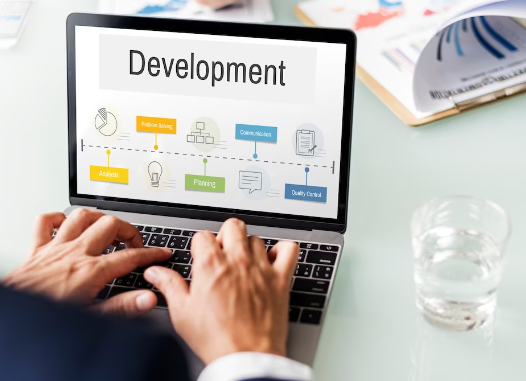Salesforce Development

Salesforce is one of the most popular cloud-based CRM solutions that help organizations enhance their sales and customer service performance. Salesforce developers are involved in modifying and improving the application to suit the needs of an organization. This course often includes a broad spectrum of topics concerning Salesforce customization, programming, and development to help students unlock the full potential of the Salesforce platform. Moreover, the knowledge of Salesforce Development allows the students to build solutions that will address the particular requirements of the company.
Automation Capabilities
Security
Integrations
Embedded Intelligence
Mobile Access
Course Objectives
Use CSS for page improvement.
Master Batch Apex and Apex Scheduler.
Learn about controllers, extensions, and events.
Effectively handle triggers and data processing.
Become a Visualforce expert for the Lightning and the Classic versions.
Excel in Apex, including data control and limits.
Develop Lightning components and data exchange.
Understand Force.com code and Salesforce data model.
Learn about SOQL and SOSL for data manipulation.
Be proficient in integration with Salesforce using SOAP, REST, and JSON.
Student Journey throughout the course

The following are the main steps that you are likely to go through once you have registered for Salesforce Development training at our institution. Our tutor will have a minimum of 15+ yrs of Salesforce/relevant IT experience to train you. This course consists of the Salesforce Development comprising Visualforce pages, Apex basics, Triggers & Data, Introduction to LWC, and Salesforce integration. You gain specialization in designing and implementing custom applications on the robust Salesforce Platform. Also, you can take an official Salesforce Platform Developer [PD1] certification exam. The journey ends with an evaluation.
PROFESSIONAL CERTIFICATION
“Salesforce Development” Course
Interactive sessions
Online/offline learning
Realtime industry oriented teaching
Completion certificate from traininghub.io
24*7 Course material access
One-on-one interaction with mentor
Get more information
View the course package for a detailed curriculum, financing, options, and more.
Course content
Salesforce Development
Earn a TrainingHub Certificate of Completion
After successfully completing this course, you'll receive a certificate validating your mastery of the content. You'll receive a certificate, allowing you to showcase on your LinkedIn professional network and to share in your social network.
Celebrate your well-deserved achievement!
Your trust in us is the fuel that drives our passion for excellence, thank you for choosing TrainingHub.io.

Related courses
TrainingHub.io's Recruitment Process :


